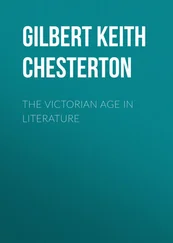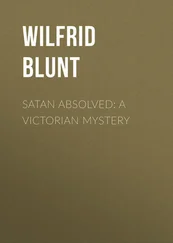Michael Kurland - Victorian Villainy
Здесь есть возможность читать онлайн «Michael Kurland - Victorian Villainy» весь текст электронной книги совершенно бесплатно (целиком полную версию без сокращений). В некоторых случаях можно слушать аудио, скачать через торрент в формате fb2 и присутствует краткое содержание. Жанр: Классический детектив, на английском языке. Описание произведения, (предисловие) а так же отзывы посетителей доступны на портале библиотеки ЛибКат.
- Название:Victorian Villainy
- Автор:
- Жанр:
- Год:неизвестен
- ISBN:нет данных
- Рейтинг книги:5 / 5. Голосов: 1
-
Избранное:Добавить в избранное
- Отзывы:
-
Ваша оценка:
- 100
- 1
- 2
- 3
- 4
- 5
Victorian Villainy: краткое содержание, описание и аннотация
Предлагаем к чтению аннотацию, описание, краткое содержание или предисловие (зависит от того, что написал сам автор книги «Victorian Villainy»). Если вы не нашли необходимую информацию о книге — напишите в комментариях, мы постараемся отыскать её.
Victorian Villainy — читать онлайн бесплатно полную книгу (весь текст) целиком
Ниже представлен текст книги, разбитый по страницам. Система сохранения места последней прочитанной страницы, позволяет с удобством читать онлайн бесплатно книгу «Victorian Villainy», без необходимости каждый раз заново искать на чём Вы остановились. Поставьте закладку, и сможете в любой момент перейти на страницу, на которой закончили чтение.
Интервал:
Закладка:
Crisboy, the physical education instructor who roomed with the Maples, a large, muscular, and pugnacious-looking man in his late twenties, was standing in one corner of the lawn with a games coach named Faulting; a young man with the build and general appearance of one of the lithe athletes depicted by ancient Greek statuary, if you can picture a young Greek athlete clad in baggy grey flannels. The comparison was one that Faulting was well aware of, judging by his practice of posing heroically whenever he thought anyone was looking at him.
The pair of them were standing near the house, swinging athletic clubs with muscular wild abandon, and discussing the finer details of last Saturday’s football match, surrounded by a bevy of admiring underclassmen. There are those students at every university who are more interested in games than education. They spend years afterward talking about this or that cricket match against their mortal foes at the next school over, or some particularly eventful football game. It never seems to bother them, or perhaps even occur to them, that they are engaged in pursuits at which a suitably trained three-year-old chimpanzee or orang-utan could best them. And, for some reason that eludes me, these men are allowed to vote and to breed. But, once again, I digress.
Maples was walking magisterially across the lawn, his grey master’s gown billowing about his fundament, his hands clasped behind him holding his walking-stick, which jutted out to his rear like a tail, followed by a gaggle of young gentlemen in their dark brown scholars’ gowns, with their mortar-boards tucked under their arms, most of them giving their professor the subtle homage of imitating his walk and his posture. “The ideal of the university,” Maples was saying in a voice that would brook no dispute, obviously warming up to his theme, “is the Aristotelean stadium as filtered through the medieval monastic schools.”
He nodded to me as he reached me, and then wheeled about and headed back whence he had come, embroidering on his theme. “Those students who hungered for something more than a religious education, who perhaps wanted to learn the law, or what there was of medicine, headed toward the larger cities, where savants fit to instruct them could be found. Paris, Bologna, York, London; here the students gathered, often traveling from city to city in search of just the right teacher. After a century or two the instruction became formalized, and the schools came into official existence, receiving charters from the local monarch, and perhaps from the pope.”
Maples suddenly froze in mid-step and wheeled around to face his entourage. “But make no mistake!” he enjoined them, waving his cane pointedly in front him, its duck-faced head point first at one student and then another, “a university is not made up of its buildings, its colleges, its lecture halls, or its playing fields. No, not even its playing fields. A university is made up of the people-teachers and students-that come together in its name. Universitas scholarium, is how the charters read, providing for a, shall I say guild, of students. Or, as in the case of the University of Paris, a universitas magistrorum, a guild of teachers. So we are co-equal, you and I. Tuck your shirt more firmly into your trousers, Mr. Pomfrit, you are becoming all disassembled.”
He turned and continued his journey across the greensward, his voice fading with distance. His students, no doubt impressed with their new-found equality, trotted along behind him.
Lucy Moys glided onto the lawn just then, coming through the french doors at the back of the house, bringing a fresh platter of pastries to the parasol-covered table. Behind her trotted the maid, bringing a pitcher full of steaming hot water to refill the teapot. Sherlock Holmes left my side and wandered casually across the lawn, contriving to arrive by Miss Lucy’s side just in time to help her distribute the pastries about the table. Whether he took any special interest in her ear, I could not observe.
I acquired a cup of tea and a slice of tea-cake and assumed my accustomed role as an observer of phenomena. This has been my natural inclination for years, and I have enhanced whatever ability I began with by a conscious effort to accurately take note of what I see. I had practiced this for long enough, even then, that it had become second nature to me. I could not sit opposite a man on a railway car without, for example, noticing by his watch-fob that he was a Rosicrucian, let us say, and by the wear-marks on his left cuff that he was a note-cashier or an order clerk. A smudge of ink on his right thumb would favor the note-cashier hypothesis, while the state of his boots might show that he had not been at work that day. The note-case that he kept clutched to his body might indicate that he was transferring notes to a branch bank, or possibly that he was absconding with the bank’s funds. And so on. I go into this only to show that my observations were not made in anticipation of tragedy, but were merely the result of my fixed habit.
I walked about the lawn for the next hour or so, stopping here and there to nod hello to this student or that professor. I lingered at the edge of this group, and listened for a while to a spirited critique of Wilkie Collin’s recent novel, “The Moonstone,” and how it represented an entirely new sort of fiction. I paused by that cluster to hear a young man earnestly explicating on the good works being done by Mr. William Booth and his Christian Revival Association in the slums of our larger cities. I have always distrusted earnest, pious, loud young men. If they are sincere, they’re insufferable. If they are not sincere, they’re dangerous.
I observed Andrea Maples, who had dried her feet and lowered her skirts, take a platter of pastries and wander around the lawn, offering a cruller here and a tea-cake there, whispering intimate comments to accompany the pastry. Mrs. Maples had a gift for instant intimacy, for creating the illusion that you and she shared wonderful, if unimportant, secrets. She sidled by Crisboy, who was now busy leading five or six of his athletic proteges in doing push-ups, and whispered something to young Faulting, the games coach, and he laughed. And then she was up on her tip-toes whispering some more. After perhaps a minute, which is a long time to be whispering, she danced a few steps back and paused, and Faulting blushed. Blushing has quite gone out of fashion now, but it was quite the thing for both men and women back in the seventies. Although how something that is believed to be an involuntary physiological reaction can be either in or out of fashion demands more study by Dr. Freud and his fellow psycho-analysts.
Crisboy gathered himself and leaped to his feet. “Stay on your own side of the street!” he yapped at Andrea Maples, which startled both her and the young gamesmen, two of whom rolled over and stared up at the scene, while the other three or four continued doing push-ups at a frantic pace, as though there was nothing remarkable happening above them. After a second Mrs. Maples laughed and thrust the plate of pastries out at him.
Professor Maples turned to stare at the little group some twenty feet away from him and his hands tightened around his walking stick. Although he strove to remain calm, he was clearly in the grip of some powerful emotion for a few seconds before he regained control. “Now, now, my dear,” he called across the lawn. “Let us not incite the athletes.”
Andrea skipped over to him and leaned over to whisper in his ear. As she was facing me this time, and I had practiced lip-reading for some years, I could make out what she said: “Perhaps I’ll do you a favor, poppa bear,” she whispered. His reply was not visible to me.
A few minutes later my wanderings took me over to where Sherlock Holmes was sitting by himself on one of the canvas chairs near the french windows looking disconsolate. “Well,” I said, looking around, “and where is Miss Lucy?”
Читать дальшеИнтервал:
Закладка:
Похожие книги на «Victorian Villainy»
Представляем Вашему вниманию похожие книги на «Victorian Villainy» списком для выбора. Мы отобрали схожую по названию и смыслу литературу в надежде предоставить читателям больше вариантов отыскать новые, интересные, ещё непрочитанные произведения.
Обсуждение, отзывы о книге «Victorian Villainy» и просто собственные мнения читателей. Оставьте ваши комментарии, напишите, что Вы думаете о произведении, его смысле или главных героях. Укажите что конкретно понравилось, а что нет, и почему Вы так считаете.
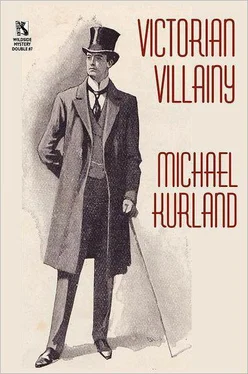
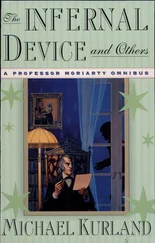

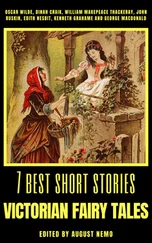




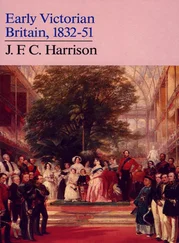
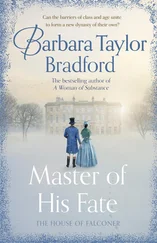
![Brian Thompson - A Monkey Among Crocodiles - The Life, Loves and Lawsuits of Mrs Georgina Weldon – a disastrous Victorian [Text only]](/books/704922/brian-thompson-a-monkey-among-crocodiles-the-life-thumb.webp)
